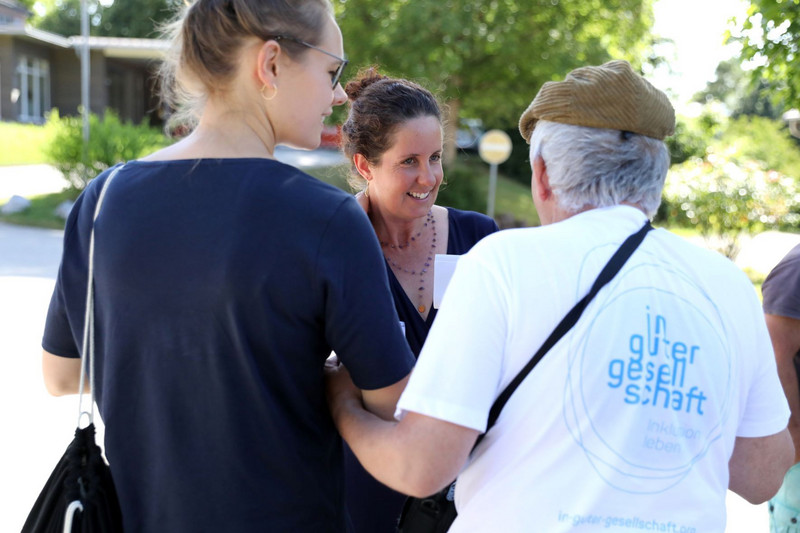Better together: Shaping Inclusion

For many decades anthroposophic institutions have been places where people with and without assistance needs live, learn and work together. The broad-based project “in guter Gesellschaft – Inklusion leben” (in good company – living inclusion) of the German association of anthroposophic social service providers – Anthropoi Bundesverband – aims to further develop this inclusive approach and open it up even more to the surrounding community.
People with assistance needs have a right to participate in society. This is about more than a few accessible parking spaces at the supermarket or accessible lifts at government offices: Inclusive community living encompasses school, training and professional life, as well as leisure activities and political involvement. And it is also about accessibility in other areas, such as communication. Anthropoi Bundesverband encompasses a multitude of curative educational and social therapy facilities under its aegis for people of all ages. The work of these facilities is guided by a holistic view of the human being with the aim of accompanying and supporting individual development on a physical, psychological and spiritual level. Many places where people with and without disabilities live and work together have been founded, especially since the 1980s, based on this approach.
How can these organisations open up to the social environment in the sense of an inclusive community? This question is being explored by the “in guter Gesellschaft – Inklusion leben” project. Launched by Anthropoi Bundesverband in 2019, this initiative promotes 13 exemplary projects nationwide that, as “Orte des Gelingens” (places of success), pursue approaches that promote community-wide inclusion. For example, the people in charge of Hermann Jülich Werkgemeinschaft in Ahrensburg in northern Germany have started an inclusion café to establish stronger links with the neighbourhood. The Christopherus-Schule school’s youth project in Bochum involves adolescents, mothers, teachers and a project coordinator in creating new spaces for encounters and participation. The Christophorus Gemeinschaft e. V. site in Niederweiler will have an inclusive town centre with many new buildings, creating opportunities for encounters at shopping, residential and leisure facilities.
People with assistance needs – referred to as co-designers – contribute their personal experiences on inclusive teams, contributing to improving how inclusion projects are designed and propagating the knowledge acquired from these projects. Concrete ideas are being developed in “future workshops” with partners from the surrounding area and then spread to the wider community. The initiators also believe it is important for the places of life to establish a dialogue with other community actors: with those responsible in the local authorities and associations, families, young people and seniors, refugees, and people with chronic illnesses. The methods, procedures and positive examples of inclusive community development established within the framework of the “in guter Gesellschaft – Inklusion leben” project will be communicated at the end of the national project in 2024, for instance, in a practical handbook. This publication will explain the special features of the anthroposophic approach to inclusion and describe the process by which services for people with assistance needs open up to the surrounding community. The project website already offers a variety of insights into the project: in-guter-gesellschaft.org.
